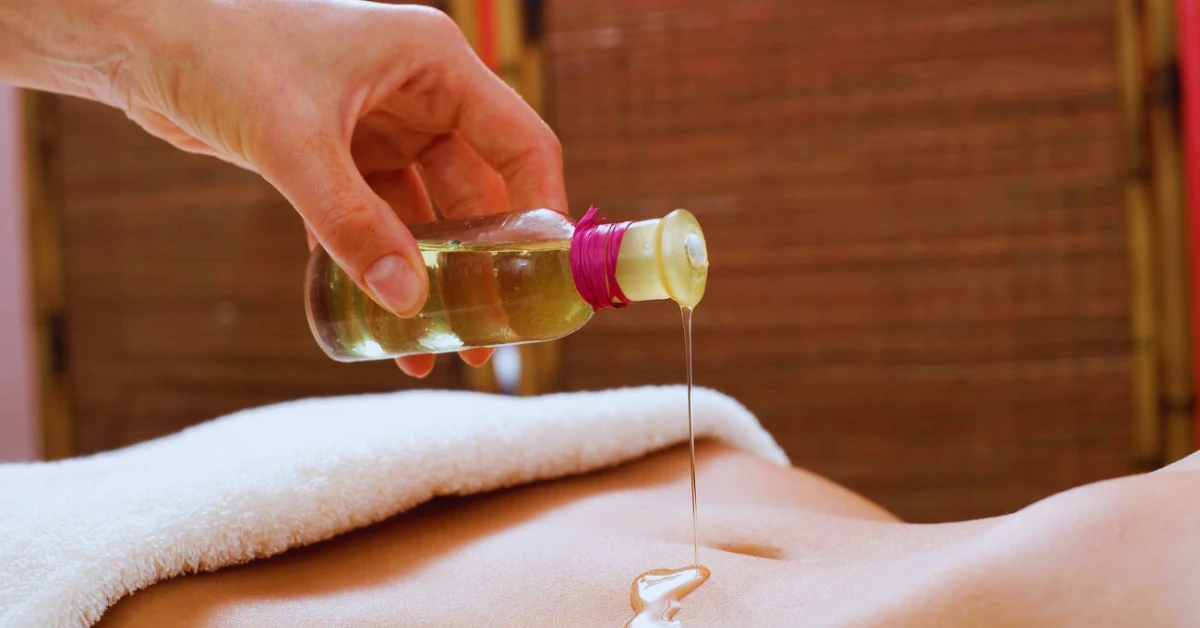Applying castor oil to the belly button has gained popularity as a natural remedy for various health issues. This practice, known as navel pulling, is believed to offer benefits such as improved digestion, detoxification, and skin health. In this article, we’ll explore the potential side effects of applying castor oil to the belly button and provide guidance on how to safely incorporate this practice into your wellness routine.
Key Takeaways
- Navel pulling with castor oil may offer potential benefits but can also cause side effects.
- Common side effects include skin irritation, allergic reactions, and digestive issues.
- Consult a healthcare professional before trying this practice and follow proper application techniques to minimize risks.
Navel Pulling with Castor Oil
Navel pulling with castor oil involves applying a small amount of castor oil to the belly button and allowing it to absorb into the skin. This practice has roots in ancient Ayurvedic medicine, where the navel is considered a central point of the body’s energy and health. Proponents of this method believe that castor oil can be absorbed through the navel and positively affect various organs and systems in the body.
Potential Benefits of Castor Oil in the Belly Button
Some potential benefits of applying castor oil to the belly button include:
- Improved digestion: Castor oil is believed to stimulate the digestive system and alleviate issues like constipation and bloating.
- Detoxification: The navel is thought to be connected to numerous veins and nerves, and applying castor oil may help remove toxins from the body.
- Enhanced skin health: Castor oil’s moisturizing properties may help improve the skin’s appearance and reduce inflammation.
However, it’s important to note that more scientific research is needed to fully understand the effectiveness and mechanisms behind these potential benefits.
Also Read: How To Get Rid Of Textured Skin?
How to Apply Castor Oil to Your Belly Button?
To apply castor oil to your belly button, follow these steps:
- Choose a pure, cold-pressed, hexane-free castor oil to ensure quality and minimize the risk of irritation.
- Cleanse your belly button with warm water and gentle soap to remove any dirt or debris.
- Dip a clean cotton swab or your finger into the castor oil and apply a small amount to your belly button.
- Gently massage the oil into the skin around your navel for a few minutes.
- Leave the oil in place for 15-20 minutes or overnight, depending on your preference and skin sensitivity.
- Rinse the area with warm water and pat dry with a clean towel.
Start with a small amount of castor oil and gradually increase the frequency of application to gauge your body’s response. It’s recommended to perform this practice no more than once or twice a week to avoid potential side effects.
Possible Side Effects Of Applying Castor Oil In Belly Button
While many people use castor oil in their belly buttons without issues, some may experience side effects. Common reactions include:
- Skin irritation: Castor oil can cause redness, itching, or a rash, especially in those with sensitive skin.
- Allergic reactions: Some individuals may be allergic to castor oil, leading to symptoms like hives, swelling, or difficulty breathing.
- Digestive issues: Ingesting castor oil can cause diarrhea, nausea, and cramping. Avoid applying too much oil to prevent accidental ingestion.
If you experience any adverse effects, discontinue the use of castor oil and consult a healthcare professional. They can help determine the cause of your reaction and recommend appropriate treatment options.
Conclusion
Applying castor oil to the belly button may offer potential benefits, but it’s crucial to be aware of the possible side effects. While some people find this practice helpful for improving digestion, detoxification, and skin health, others may experience skin irritation, allergic reactions, or digestive issues.
Before trying navel pulling with castor oil, it’s essential to do your own research and consult with a healthcare professional. They can provide personalized guidance based on your individual health needs and concerns.
Remember to use pure, high-quality castor oil and follow proper application techniques to minimize the risk of side effects. If you experience any adverse reactions, discontinue use and seek medical attention if necessary.
While navel pulling with castor oil may be a complementary practice to support overall wellness, it should not replace proven medical treatments or a balanced lifestyle. As with any new health practice, approach it with caution and listen to your body’s responses.
Read More: How To Stop Liver Pain Immediately?: Understanding Causes And Finding Relief
FAQs
A: It’s best to use pure, cold-pressed, hexane-free castor oil to ensure quality and minimize the risk of irritation.
A: Start with once a week and gradually increase the frequency to no more than twice a week, depending on your body’s response and skin sensitivity.
A: Yes, you can leave castor oil in your belly button overnight, but start with shorter durations (15-20 minutes) to assess your skin’s reaction.
A: If you experience any side effects, stop using castor oil and consult a healthcare professional for guidance and appropriate treatment options.

